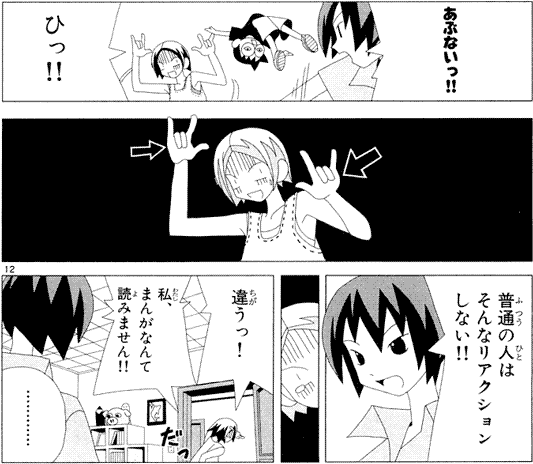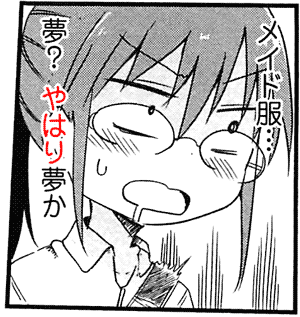Gyakuten Saiban - Game Vocabulary
- People and Their Titles
- Elements of a Crime
- Proofs, Testimonies and Evidences
- Interrogation
- Truth and Lie
- Court
- Murder and Death
Raws
In English, raws are the untranslated manga chapters and anime episodes. A raw manga, or manga raw, is the manga as written in Japanese. A raw anime, or anime raw, is the anime without subtitles and in Japanese, as opposed to an English dubbed version.
The term may also be applied to doujinshi 同人誌, games, visual novels, light novels, etc.
- Context: what a raw manga looks like.
- See also: rumic hand sign.
A lot of series are consumed through official translations or unofficial ones (scanlations, fansubs). A translation, no matter how well-done, is a creative process that changes what the original author intended to convey by mixing in the interpretation of the translator.
If a joke goes over the translator's head, for example, or if he can't translate the joke, it won't make it to the translation, so fans strive to read the raws and watch the raws in order to skip this middleman.
yappari やっぱり
It's also spelled yappari 矢っ張り, with kanji.
yahari 矢張り
It's also spelled yahari やはり, without kanji, and yahari 矢張, without okurigana. Variants include yappari やっぱり, yappa やっぱ, and yappashi やっぱし.
"Good" and "Bad" in Japanese
Common Anime Words Glossary
In this blog I have explained the meanings of many Japanese words often used in manga and anime. I have explained so many words that in this post I'll just link all the words I have explained so you can learn them all at once!

